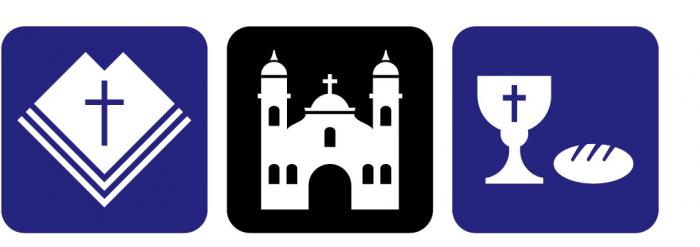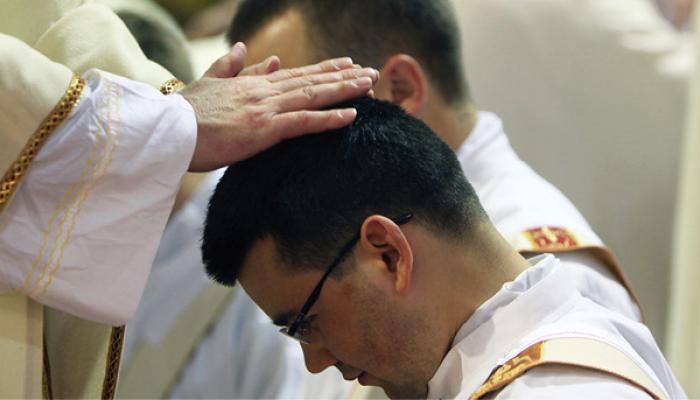
3.35 What are the sacraments?
God knows that we cannot establish contact with him without his help. This is why Jesus instituted the sacraments. God is present in the sacraments in a very concrete way.
You can regard a sacrament as a kind of ‘gateway’ that God uses to provide us with instant access to his grace. There are seven sacraments: Baptism, Confirmation, Eucharist, Reconciliation, Anointing of the Sick, Marriage, and Ordination.
How is Christian initiation brought about?
Christian initiation is accomplished by means of the sacraments which establish the foundations of Christian life. The faithful born anew by Baptism are strengthened by Confirmation and are then nourished by the Eucharist. [CCCC 251]
What is required of one who is to be baptized?
Everyone who is to be baptized is required to make a profession of faith. This is done personally in the case of an adult or by the parents and by the Church in the case of infants. Also the godfather or the godmother and the whole ecclesial community share the responsibility for baptismal preparation (catechumenate) as well as for the development and safeguarding of the faith and grace given at baptism. [CCCC 259]
What are the sacraments at the service of communion and mission?
Two sacraments, Holy Orders and Matrimony, confer a special grace for a particular mission in the Church to serve and build up the People of God. These sacraments contribute in a special way to ecclesial communion and to the salvation of others. [CCCC 321]
Is there some inner logic that unites the sacraments with each other?
All sacraments are an encounter with Christ, who is himself the original sacrament. There are sacraments of initiation, which introduce the recipient into the faith: Baptism, Confirmation, and Eucharist. There are sacraments of healing: Reconciliation and the Anointing of the Sick. And there are sacraments of communion and mission: Matrimony and Holy Orders.
Baptism joins us with Christ. Confirmation gives us his spirit. The Eucharist unites us with him. Confession reconciles us with Christ. Through the Anointing of the sick, Christ heals, strengthens, and consoles. In the sacrament of Matrimony, Christ promises his love in our love and his fidelity in our fidelity. Through the sacrament of Holy Orders, priests have the privilege of forgiving sins and celebrating the holy sacrifice of the Mass. [Youcat 193]
Why did Christ give us the sacrament of Penance and the Anointing of the Sick?
Christ’s love is shown in the fact that he seeks the lost and heals the sick. That is why he gave us the sacraments of healing and restoration, in which we are freed from sin and strengthened in our physical and spiritual weakness. [Youcat 224]
What are the names of the sacraments that serve to build up communion in the Church?
Someone who is baptized and confirmed can receive moreover a special mission in the Church in two special sacraments and thus be enlisted in the service of God: Holy Orders and Matrimony.
The two sacraments have something in common: They are directed to the good of others. No one is ordained just for himself, and no one enters the married state merely for is own sake. The sacrament of holy Orders and the sacrament of Matrimony are supposed to build up the People of God; in other words, they are a channel through which God pours out love into the world. [Youcat 248]
The life of prayer is nourished above all by participation in the Church's Liturgy. In order to be able to grow, the interior life requires participation at Holy Mass and recourse to the Sacrament of Reconciliation. In this way, the whole of life is pervaded by Christ: by Christ himself and by his grace. For it was he who said: "He who eats my flesh and drinks my blood abides in me, and I in him" (Jn 6:56). The Eucharist is the spiritual food from which in a particular way we draw spiritual strength in our journey of witness, so that we can bear fruit abundantly. For this reason taking part in Sunday Mass is so important. [Pope John Paul II, Homily in Gorzov, 2 June 1997]





